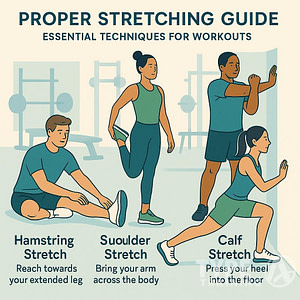Visiting a naturopathic doctor for the first time can be an enlightening experience. These healthcare professionals take a holistic approach to wellness, focusing on the whole person rather than just treating symptoms.
Naturopathic doctors typically spend 60 to 90 minutes with patients during initial consultations, allowing for a comprehensive assessment of your health and lifestyle.
Your first appointment with a naturopathic doctor will involve answering many questions about your health history and current concerns.
Popular posts:
They aim to understand not only your physical symptoms but also your emotional well-being, daily habits, and environmental factors that may influence your health.
This thorough approach helps them develop a personalized treatment plan tailored to your unique needs.
By knowing what questions to expect, you can prepare for your visit and make the most of your time with the naturopathic doctor.
This preparation will help you provide detailed, accurate information about your health, enabling your doctor to create an effective treatment strategy.
Key Takeaways
- Naturopathic consultations are comprehensive, addressing your overall health and lifestyle.
- You’ll discuss your medical history, current health concerns, and personal wellness goals.
- Prepare to share information about your diet, sleep patterns, and stress levels.
Understanding Naturopathic Medicine
Naturopathic medicine focuses on holistic, natural approaches to health and healing. It emphasizes prevention and treating the root causes of illness rather than just symptoms.
Principles and Philosophy
Naturopathic doctors follow six core principles:
- First, do no harm
- The healing power of nature
- Identify and treat the cause
- Treat the whole person
- Doctor as teacher
- Prevention
These principles guide NDs to use natural, non-invasive treatments whenever possible. They aim to support the body’s inherent ability to heal itself.
NDs take time to understand your full health history, lifestyle, and environmental factors.
This allows them to create personalized treatment plans that may include nutrition, herbal medicine, lifestyle changes, and other natural therapies.
Comparison with Conventional Medicine
Naturopathic medicine differs from conventional medicine in several key ways:
- Appointment length: NDs typically spend 1-2 hours with new patients, compared to 15-30 minutes with conventional doctors.
- Treatment approach: NDs focus on addressing root causes, while conventional medicine often targets symptom management.
- Therapy types: Naturopathic treatments emphasize natural remedies, while conventional medicine relies more on pharmaceuticals and surgery.
- Prevention: NDs place a strong emphasis on preventive care and patient education.
- Philosophy: Naturopathic medicine views the body as an interconnected system, while conventional medicine often takes a more compartmentalized approach.
Both approaches have their strengths, and many patients find value in combining naturopathic and conventional care for a comprehensive health strategy.
Preparing for Your Naturopathic Consultation
Proper preparation can significantly enhance your first naturopathic doctor visit. By gathering necessary information and setting clear health goals, you’ll make the most of your consultation time.
What to Bring to Your Appointment
Bring a comprehensive list of your current medications, supplements, and herbal remedies. Include dosages and frequency of use.
Compile your medical records, including recent lab tests and imaging results. If possible, obtain these from your primary care physician beforehand.
Pack a detailed health history covering past illnesses, surgeries, and family health conditions. Note any allergies or sensitivities you have.
Write down your main health concerns and symptoms.
Be specific about when they started and any patterns you’ve noticed.
Include a food diary covering the past week to provide insight into your dietary habits.
Bring a list of questions you have for the naturopathic doctor. This ensures you don’t forget important topics during the consultation.
Setting Health Goals
Before your appointment, reflect on your health priorities. Identify specific areas where you want to see improvement.
These might include managing chronic conditions, boosting energy levels, or addressing digestive issues.
Consider both short-term and long-term health objectives.
Short-term goals could involve symptom relief, while long-term goals might focus on disease prevention or overall wellness.
Be realistic in your expectations. Naturopathic care often involves gradual changes and lifestyle adjustments.
Prepare to discuss these potential changes with your doctor.
Think about any barriers that might prevent you from achieving your health goals.
This could include time constraints, financial concerns, or lack of support. Your naturopathic doctor can help address these challenges in your treatment plan.
Personal Medical History
Your naturopathic doctor will inquire about your past and present health conditions to gain a comprehensive understanding of your medical background. This information helps tailor a personalized treatment plan.
Chronic Illnesses and Conditions
Expect questions about any long-term health issues you’ve experienced.
Your naturopathic doctor will ask about diagnosed chronic conditions such as diabetes, hypertension, or autoimmune disorders.
They’ll want to know when these conditions were diagnosed and how they’ve progressed over time.
You may be asked about:
- Allergies and sensitivities
- Digestive issues
- Sleep patterns and quality
- Mental health concerns
- Recurring infections or illnesses
Be prepared to discuss any symptoms you experience, even if they seem unrelated.
Your naturopath aims to identify underlying patterns that may connect various health issues.
Previous Treatments and Surgeries
Your naturopathic doctor will inquire about past medical interventions.
This includes surgeries, hospitalizations, and significant medical procedures you’ve undergone.
They’ll want to know the reasons for these interventions and their outcomes.
Provide information on:
- Prescription medications you’re taking or have taken
- Over-the-counter drugs you use regularly
- Supplements and herbal remedies you’ve tried
- Alternative therapies you’ve explored (e.g., acupuncture, chiropractic care)
Be specific about the effectiveness of these treatments.
Your naturopath will use this information to understand your body’s responses and tailor future recommendations accordingly.
Dietary Habits and Nutrition
Your naturopathic doctor will inquire about your eating patterns and any food-related issues you may have. These questions help assess how your diet impacts your overall health and identify potential areas for improvement.
Typical Dietary Intake
A naturopathic doctor will ask detailed questions about your diet, including what you eat regularly for each meal.
They may request you to provide a typical day’s food intake or keep a food diary for a week.
This information helps them understand your nutritional habits and identify any potential deficiencies or excesses.
They’ll also ask about:
- Your water intake
- Consumption of processed foods
- Frequency of eating out
- Any specific diets you follow (e.g., vegetarian, keto, paleo)
Your ND may inquire about how you feel after eating certain foods.
This can reveal connections between your diet and energy levels, digestive issues, or other symptoms.
Food Allergies and Intolerances
Your naturopathic doctor will ask about any known food allergies or intolerances.
They’ll want to know about:
- Specific foods that cause reactions
- Types of symptoms you experience
- Severity and duration of reactions
- Any diagnostic tests you’ve had for food allergies
They may also inquire about foods you suspect might be causing issues, even if not officially diagnosed.
This information helps your ND understand how your diet impacts your overall health and wellbeing.
Your doctor might recommend further testing or an elimination diet to identify potential food sensitivities.
They’ll use this information to develop a personalized nutrition plan that supports your health goals and addresses any food-related concerns.
Lifestyle and Wellness
Naturopathic doctors focus on understanding your daily habits and routines to develop a comprehensive treatment plan.
They explore your physical activity and how you manage stress and sleep, as these factors significantly impact your overall health and well-being.
Physical Activity Level
Your naturopathic doctor will inquire about your exercise habits and physical activity level. They may ask:
- How often do you exercise?
- What types of activities do you enjoy?
- Do you have a regular fitness routine?
The aim is to gauge your current fitness level and identify areas for improvement. Your doctor might suggest exercises tailored to your health goals and physical capabilities.
They may also ask about your daily movement patterns, including:
- How much time do you spend sitting?
- Do you take regular breaks to move throughout the day?
This information helps them understand your overall activity level and its impact on your health.
Stress and Sleep Patterns
Your naturopathic doctor will explore your stress levels and sleep quality. They may ask:
- How do you manage stress in your daily life?
- What relaxation techniques do you use?
- How many hours of sleep do you typically get?
They’ll want to know about your bedtime routine and any sleep disturbances you experience. This information helps them assess the impact of stress and sleep on your health.
Your doctor might inquire about:
- Your work-life balance
- Any major life stressors you’re facing
Understanding these factors allows them to recommend appropriate stress management techniques and sleep hygiene practices to improve your overall well-being.
Current Health Concerns
A naturopathic doctor will inquire about your present health issues to gain a comprehensive understanding of your well-being. They’ll explore the nature of your symptoms and how they affect your daily life.
Symptoms and Severity
Your naturopathic doctor will ask you to describe your current health concerns in detail. Be prepared to discuss:
- Specific symptoms you’re experiencing
- When the symptoms started
- How often they occur
- Their intensity or severity
- Any patterns you’ve noticed
The doctor may ask you to rate your symptoms on a scale of 1-10. This helps them gauge the severity and prioritize treatment. They’ll also want to know if your symptoms have changed over time or if you’ve noticed any triggers.
Impact on Daily Activities
Your naturopathic doctor will explore how your health concerns affect your daily life. They may ask:
- Does your condition interfere with work or school?
- How does it impact your sleep?
- Has it affected your relationships or social life?
- Are there any activities you’ve had to give up or modify?
Be honest about how your health issues are impacting your quality of life. This information helps your doctor understand the full scope of your condition and develop a tailored treatment plan.
Family Health History
Your family’s health history provides crucial insights into potential health risks and genetic predispositions. Naturopathic doctors use this information to develop personalized prevention and treatment strategies.
Genetic Predispositions
Naturopathic doctors will ask about genetic conditions that run in your family. This includes:
- Heart disease
- Diabetes
- Cancer
- Autoimmune disorders
They may inquire about specific relatives who have been diagnosed with these conditions. Your doctor will also ask about the age of onset for these diseases in your family members.
Understanding your genetic risk factors allows for early interventions and lifestyle modifications. This proactive approach can help prevent or delay the onset of hereditary conditions.
Common Family Illnesses
Your naturopath will be interested in common health issues that affect multiple family members. These may include:
- Allergies
- Asthma
- Thyroid disorders
- Mental health conditions
They’ll explore your family’s health history in detail, looking for patterns across generations. This information helps identify potential environmental or lifestyle factors that may contribute to these illnesses.
Your doctor will use this knowledge to develop a tailored treatment plan. They may recommend specific preventive measures or screening tests based on your family’s health trends.
Supplementation and Medication
Naturopathic doctors carefully assess your current medications and supplement regimens. They aim to understand potential interactions and identify opportunities for optimizing your health through targeted supplementation.
Current Medications
Your naturopathic doctor will inquire about all medications you’re taking, including prescription drugs, over-the-counter medicines, and herbal remedies. They’ll ask about dosages, frequency, and how long you’ve been taking each medication.
This information helps them evaluate potential side effects and interactions. They may discuss the necessity of certain medications and explore natural alternatives where appropriate.
Be prepared to explain why you’re taking each medication and any effects you’ve noticed. Your doctor might suggest adjustments to your medication regimen in coordination with your primary care physician.
Vitamins and Supplements
Your naturopathic doctor will ask about any vitamins, minerals, herbs, or other supplements you’re currently taking. They’ll want to know brands, dosages, and reasons for taking each supplement.
This information helps them assess the effectiveness of your current supplement routine and identify any potential gaps or excesses. They may recommend changes based on your specific health needs and goals.
Be ready to discuss any positive or negative effects you’ve experienced from your supplements. Your doctor might suggest lab tests to check for deficiencies and determine the most beneficial supplements for you.
Review and Next Steps
After your initial consultation, the naturopathic doctor will review your health history and current concerns. They will then develop a personalized treatment plan tailored to your specific needs.
Summary of Findings
Your naturopathic doctor will provide a comprehensive overview of their findings based on your responses to the key questions. This summary may include:
- Potential root causes of your health issues
- Connections between symptoms and lifestyle factors
- Identified areas for improvement in diet, exercise, or stress management
- Possible nutrient deficiencies or imbalances
The doctor will explain these findings in clear, understandable terms. They may use visual aids or diagrams to help you grasp complex concepts.
Outline of the Treatment Plan
Based on the summary of findings, your naturopathic doctor will create a personalized treatment plan. This plan may include:
- Dietary recommendations and meal planning suggestions
- Herbal or nutritional supplements
- Lifestyle modifications, such as exercise routines or stress reduction techniques
- Complementary therapies like acupuncture or hydrotherapy
Your doctor will explain each aspect of the plan and its intended benefits. They’ll provide clear instructions on how to implement these recommendations in your daily life.
You’ll have the opportunity to ask questions and voice any concerns about the proposed treatment plan. Your doctor will work with you to ensure the plan is realistic and achievable for your lifestyle.
Frequently Asked Questions
Naturopathic doctors take a holistic approach to healthcare, considering various aspects of a patient’s life and health. They focus on natural treatments, lifestyle modifications, and personalized care plans to address both acute and chronic conditions.
What can I expect during my initial consultation with a naturopathic doctor?
Your first visit to a naturopathic doctor will be comprehensive. The doctor will ask detailed questions about your medical history, current health concerns, and lifestyle habits. This consultation may last longer than a typical medical appointment.
You’ll discuss your diet, exercise routine, stress levels, and sleep patterns. The naturopathic doctor will also inquire about your mental and emotional well-being.
Which lifestyle factors do you consider when evaluating a patient’s health?
Naturopathic doctors evaluate various lifestyle factors that impact your overall health. These include your diet, physical activity, sleep quality, stress management techniques, and work-life balance.
They may ask about your overall health and any symptoms you’re experiencing. Your relationships, job satisfaction, and daily routines are also considered.
How does a naturopathic doctor approach the treatment of chronic illnesses?
Naturopathic doctors take a holistic approach to treating chronic illnesses. They focus on identifying and addressing the root causes of your condition, rather than just managing symptoms.
Your treatment plan may include dietary changes, herbal remedies, lifestyle modifications, and stress reduction techniques. The goal is to support your body’s natural healing processes.
What dietary changes might be recommended as part of naturopathic care?
Dietary recommendations vary based on your individual health needs. A naturopathic doctor may suggest eliminating processed foods. They might also advise increasing your intake of whole fruits and vegetables.
You might be advised to reduce inflammatory foods. Or, you could be told to increase fiber intake. You might also be advised to incorporate more plant-based proteins. Hydration and the timing of meals may also be addressed.
How do you determine the right herbal or supplemental remedies for a patient?
Naturopathic doctors consider your specific health concerns, medical history, and current medications when recommending herbal or supplemental remedies. They may use natural medicine to support your body’s healing processes.
Your doctor will explain the potential benefits and any possible side effects of recommended remedies. They may also order lab tests to help determine the most appropriate supplements for your needs.
Can you explain how stress impacts my health and what natural strategies might help?
Chronic stress can negatively impact your physical and mental health. It may contribute to digestive issues, sleep problems, weakened immunity, and mood disorders.
Natural strategies to manage stress may include mindfulness meditation, regular exercise, and breathing techniques. Your naturopathic doctor might also recommend adaptogens or other herbal remedies to support your body’s stress response.

















